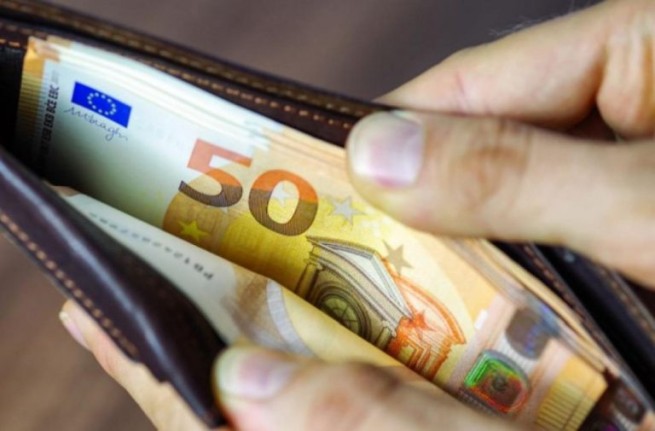Greece ranks second in terms of average annual salary in EUwith many basic products having higher prices than in other countries.
Official data from Statista on average annual salaries in the EU is disappointing. Our country ranks last among the 27 member states of the bloc, behind even the countries of the former Eastern Bloc.
According to Euronews Business, the explanation for the recession in Greece is that the overall economy and labor market are still trying to recover from the sovereign debt crisis, leaving average and minimum wages much lower than in the rest of the world.
Average annual salary according to Eurostat
According to Eurostat, the average hourly labor cost in the EU was 30.50 euros. The average annual salary for single employees without children was 26,136 euros, and for married couples with two children – 55,573 euros per year.
And although Greeks have lower disposable income, they pay more for basic goods than citizens of other European countries. Baby milk from the same company and in the same packaging is sold 37% more expensive in Greece than in Germany, since the Greek consumer will have to pay 25.99 euros per package, while the German consumer pays 18.95 euros.
The price differences for diapers are also chaotic. The price per package in Greece is almost twice as high as in Germany. A liter of milk in Greece costs 1.32 euros, and in Germany it costs 0.98 euros. The above products are not the only ones for which the Greek consumer pays more, having half or even 1/3 of the purchasing power of Europeans.
The government is aware of the problem, but…
Development Minister Kostas Skrekas admits that “the biggest problem facing households today is inflation.” Prices in the consumer basket have not decreased, despite the government’s efforts.
Looking at EU food and non-alcoholic drink inflation rates in October, figures ranged from 3.7% in Denmark to 10.4% in Greece. The EU average was 7.6%, the first single digit increase since May 2022. Annual food inflation was more than 7.5% in 14 EU member states, including Greece, Belgium, Spain and France.
Against the background of the fact that households are simply exhausted due to the ongoing revaluations of basic goods (constant rise in price), Deputy Governor of the Bank of Greece Theodoros Pelagidis is not too optimistic about the future and assures that prices will not fall.
A representative of the Central Bank, speaking on the First Program 91.6 and 105.8, estimated that prices will not decrease. And the focus will be on future income growth, which could ease the dire situation facing Greek households. “We are required to make adjustments on the salary side. Because don’t wait for food prices to drop. It will not happen. The growth rate can and will slow down, but there is no chance that prices will fall,” he said.







More Stories
EU employment record: Greece "stuck" in a low position
“Bonus” of 300 euros for the long-term unemployed
Turkish tourists choose Samos for their holidays